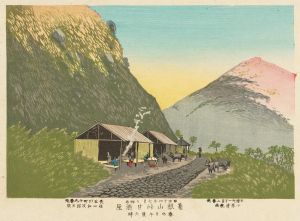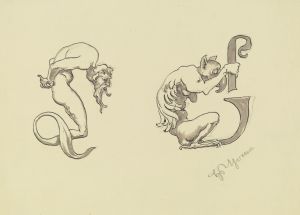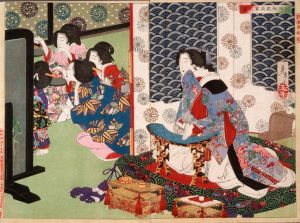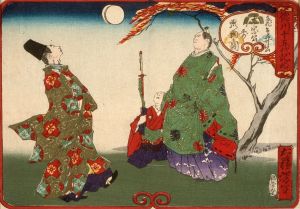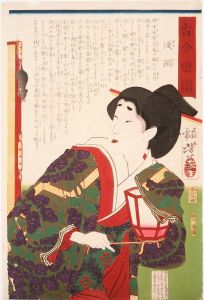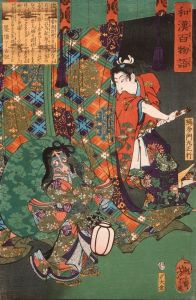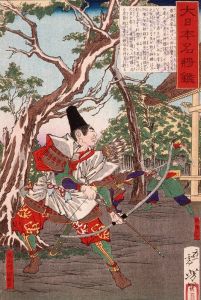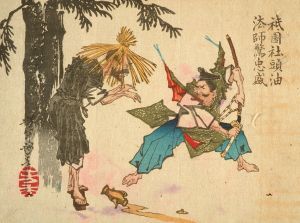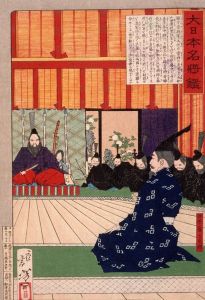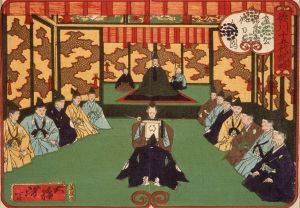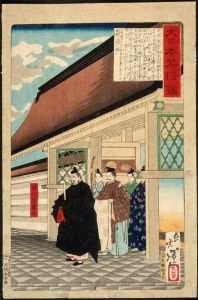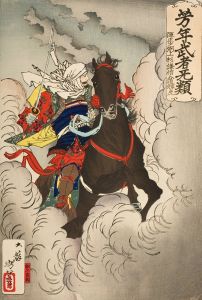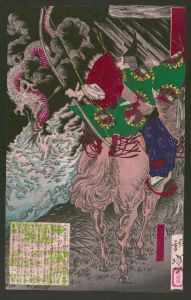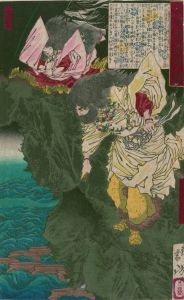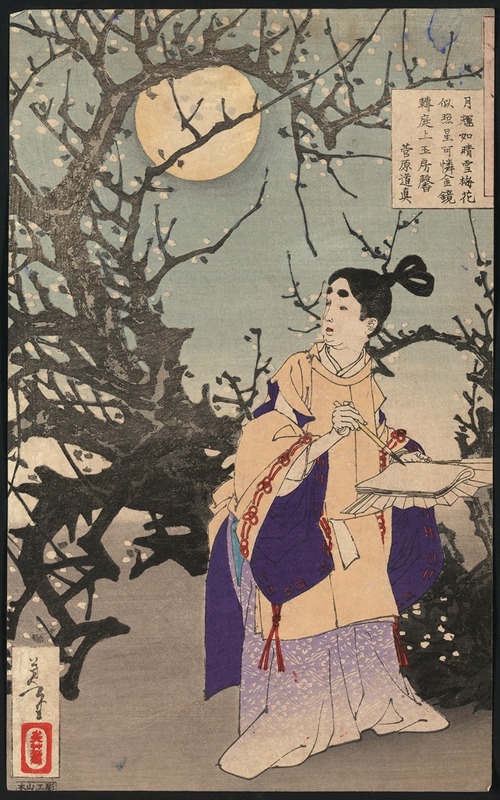
Sugawara no Michizane
A hand-painted replica of Tsukioka Yoshitoshi’s masterpiece Sugawara no Michizane, meticulously crafted by professional artists to capture the true essence of the original. Each piece is created with museum-quality canvas and rare mineral pigments, carefully painted by experienced artists with delicate brushstrokes and rich, layered colors to perfectly recreate the texture of the original artwork. Unlike machine-printed reproductions, this hand-painted version brings the painting to life, infused with the artist’s emotions and skill in every stroke. Whether for personal collection or home decoration, it instantly elevates the artistic atmosphere of any space.
Tsukioka Yoshitoshi, a renowned Japanese ukiyo-e artist of the late Edo and early Meiji periods, is celebrated for his innovative and dramatic woodblock prints. One of his notable works features Sugawara no Michizane, a prominent historical figure in Japanese history. Sugawara no Michizane (845-903) was a scholar, poet, and politician of the Heian period, who is often revered as a deity of learning and literature in Shintoism, known as Tenjin.
Yoshitoshi's depiction of Sugawara no Michizane is part of his broader exploration of historical and legendary figures, which was a common theme in his work. Yoshitoshi's prints are known for their vivid detail, emotional depth, and dynamic composition, which reflect both traditional Japanese aesthetics and the influence of Western art techniques that were becoming more prevalent during his lifetime.
The print of Sugawara no Michizane by Yoshitoshi captures the essence of Michizane's life and legacy. Michizane was a highly respected scholar and poet, serving in the imperial court as a trusted advisor. However, due to political intrigue and jealousy, he was unjustly exiled to Dazaifu in Kyushu, where he spent the remainder of his life. After his death, a series of calamities befell the capital, which were attributed to Michizane's angry spirit. In response, he was posthumously pardoned, and his spirit was enshrined as Tenjin, the god of scholarship.
Yoshitoshi's portrayal likely emphasizes the dramatic and emotional aspects of Michizane's story, capturing both his scholarly achievements and the pathos of his exile. The artist's use of bold lines and expressive faces would have been intended to convey the intensity of Michizane's experiences and the reverence with which he was regarded posthumously.
Yoshitoshi's work often reflects a deep interest in the human condition, exploring themes of heroism, tragedy, and redemption. His prints of historical figures like Sugawara no Michizane serve not only as artistic expressions but also as cultural narratives that communicate the values and stories of Japan's past. Through his art, Yoshitoshi contributed to the preservation and popularization of these stories, ensuring that figures like Michizane remained influential in Japanese cultural memory.
The print of Sugawara no Michizane is a testament to Yoshitoshi's skill in blending traditional Japanese art forms with new influences, creating works that resonate with both historical significance and artistic innovation. His ability to capture the spirit of his subjects, combined with his technical prowess, makes his depiction of Sugawara no Michizane a significant piece in the study of ukiyo-e and Japanese art history.





